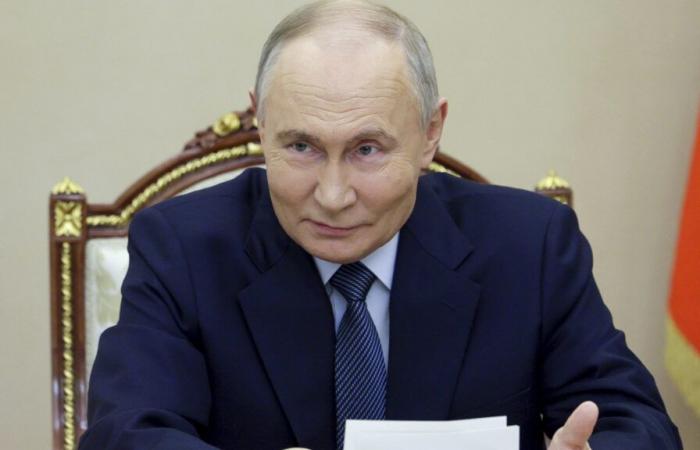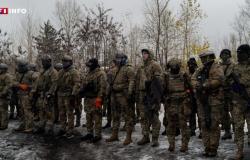The measure, the final version of which appeared Saturday on a Russian government website, underscores Russia’s need for military personnel in the nearly three-year war, even though it last week fired a new ballistic missile at range intermediate.
See also – “I suffer”: 1000 days of war between Ukraine and Russia
The new law allows those signing up for a one-year contract to write off bad debts of up to 10 million rubles (or nearly $134,140), according to the Russian state news agency. Interfax. The law applies to debts for which a recovery order has been issued by a court and enforcement proceedings for which began before December 1, 2024. It also applies to spouses of new recruits.
Russia has stepped up military recruitment by offering increasing financial incentives, in some cases several times the average salary, to those who want to fight in Ukraine.
This strategy allowed the army to strengthen its ranks in the conflict zone while avoiding another mobilization order. A “partial mobilization” in September 2022 triggered an exodus of tens of thousands of Russian men, who fled the country to avoid conscription.
The intense and prolonged war strained Russian resources. President Putin also called on the army to increase its numbers by 180,000 men last September.
The United States, South Korea and Ukraine say North Korea sent more than 10,000 troops to Russia in October, some of whom recently began engaging in combat on the front lines, increasing pressure on the equally tired and overworked Ukrainian army.
The debris of the new experimental missile
The push for recruits coincides with the firing of a new intermediate-range ballistic missile at Ukraine on Thursday. This was a response to Kyiv’s use of American and British missiles capable of striking deeper into Russia, Vladimir Putin explained.
Ukrainian security services showed The Associated Press on Sunday the debris of the new experimental ballistic missile that struck a factory in the central Ukrainian city of Dnipro.
Fragments of the missile called Oreshnik – the Russian word for hazel, and which the Pentagon says is based on the Russian RS-26 Rubezh intercontinental ballistic missile – have not yet been analyzed, security officials said on Wednesday. place, in an undisclosed location in Ukraine. The AP and other media outlets were able to see the fragments before they were taken away by investigators.
Charred, mangled wires and an ashen airframe the size of a large snow tire were all that remained of the weapon, which can carry conventional or nuclear warheads.
“It should be noted that this is the first time that the remains of such a missile have been discovered on the territory of Ukraine,” said an expert from the Security Service of Ukraine, who identified himself only by his first name Oleh, because he was not authorized to discuss the matter with the media.
The missile was fired from the fourth missile range, Kapustin Yar, in Russia’s Astrakhan region and flew for 15 minutes before hitting Dnipro, Ukraine’s General Intelligence Directorate said. The missile had six warheads, each carrying six submunitions. Top speed was 11 Mach.
Drone attacks in the night
Moscow sent 73 drones to Ukraine overnight from Saturday to Sunday. Fifty drones were destroyed and four lost, probably after being electronically jammed, according to the Ukrainian Air Force.
In Russia, the Defense Ministry reported that 34 Ukrainian drones were shot down overnight from Saturday to Sunday in four regions of western Russia, including Kursk, Lipetsk, Belgorod and one over the region of ‘Orel.
Ukrainian President Volodymyr Zelensky said on Sunday that Russian forces had struck Ukraine with more than 800 guided aerial bombs, about 460 combat drones and more than 20 missiles over the past week.






